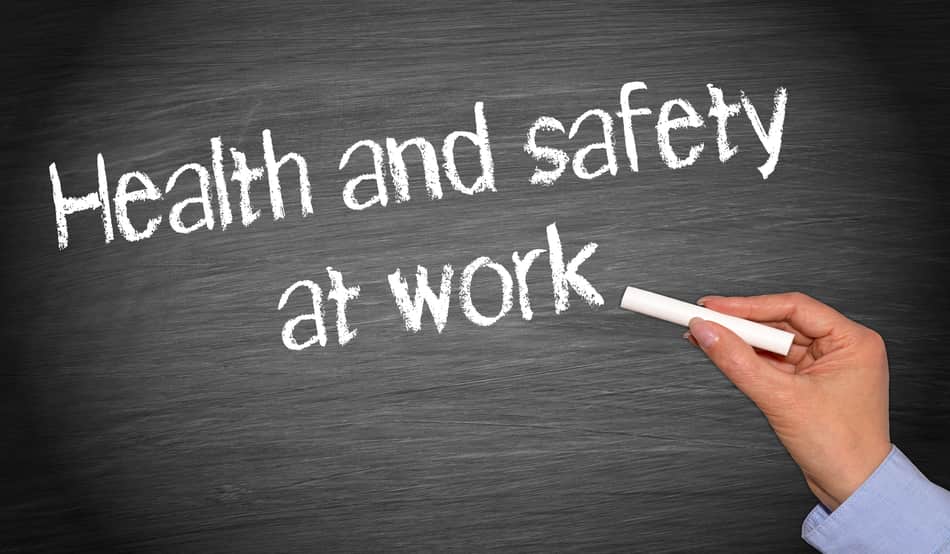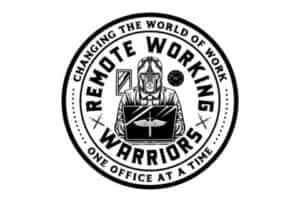This website is supported by its readers. If you click one of my links I may earn a commission. I am also a participant in the Amazon affiliates programme and I will also earn a commission from qualified purchases.

One of the surprising things I discovered whilst working from home was all the health and safety policies involved to do my normal 9-5, if I wanted to invite people over or start my own business I knew the consequences could be quite severe not understanding who is responsible for health and safety when working from home.
If you are an employee working from home it is the organizations responsibility to manage health and safety. The employee’s responsibility is to follow said policies. This was established in the UK through the Health and Safety at Work etc. Act 1974.
So what exactly are the Health and Safety policies for working remotely and what actions do businesses need to carry out to have you set up safely on your remote working journey, keep reading to find out more.
(Now it’s worth mentioning that this post has a lot of information and so if you’re curious about the best equipment needed to work remotely simply go to my resource page here)
Who is responsible for health and safety when working from home?
In short, the business is responsible for your health and safety as a remote worker, regardless of whether it is temporary or permanent remote working.
The business should take steps to ensure your home environment is safe and set up to work.
There are 2 main key areas to your safety:
– Physical
– Mental
For the physical steps, the business should be taking steps such as a risk assessment of your house to ensure it is up to standards. Key areas are:
– Ensuring your Display monitors, mouse and keyboards are properly set up
– Your desk and chair are comfortable and appropriate to work on
– Your immediate environment:
- Is the lighting suitable e.g. not too bright or dark?
- Is there enough space in the room to change positions or vary movement?
- Are the levels of heat appropriate to allow you to do your job
- Is the level of noise comfortable?
- Does the air feel comfortable (yes that’s a question!)
Also, there should be DSE & GDPR training provided. Especially working from home, it is more important than ever to ensure employees have completed or need to complete some sort of GDPR training to avoid any data breaches.
The business should ensure it has communicated that employees at home take rest breaks and ensure they take their lunch break.
From a mental health perspective, the line manager should be ensuring there are regular team and individual meetings with all members of the team and ensure the employees are aware of the reporting procedures for:
– Reporting potential hazards at work
– Reporting faulty equipment
– Reporting Work-related accidents
– Reporting an absence
– Be able to discuss any mental health-related issues – e.g. feeling isolated
For employees who are required to work from home permanently, there are further discussions to be had e.g. being provided a desk and appropriate equipment to work from home.
Whilst this article focuses on the UK mainly, a natural question could be what the health and safety regulations are like in other parts of the world, is it better or more relaxed. Well, let’s look below to compare a few examples.
Who is responsible for health and safety when working from home globally?
|
Country |
Law or Regulations |
Comments |
| UK | Health and Safety at Work etc. Act 1974 | Compared to for example US Law, UK employers are expected to show they have taken appropriate steps to ensure safety e.g. risk assessment forms. |
| USA | Occupational Safety and Health Act 1970 | Compared to the UK Law Employers have less responsibility when it comes to remote working. |
| EU Member States | OSH European Framework Directive | All member states are held to the directives – interestingly whilst there is the main framework EU also have “individual directives” that focus on more granular detail e.g. Directive 89/391 ensures employers are responsible for remote workings of H&S |
What’s an employee responsible for
Yay, I have no responsibility!
Not necessarily my friend, you still have a duty of care to the employer and fellow employees. There are the legislative expectation and the “in good faith” expectation.
From a legislative perspective you still have a duty to ensure health and safety rules are being followed at home and if there are any issues report them to the business.
For example, if you have a bad chair that is causing you back pain, you should notify your line manager or HR to ensure that is being resolved.
If you do not take those actions and it results in a more serious back injury the business can argue there is no Duty of Care as the employee did not take reasonable steps to notify them.
When I say in good faith what I mean is an expectation from a humane perspective. To not attempt to cheat, steal or take a shortcut whilst working from home. Taking the extra step to inform the business of any general issues or communicate to them gaps you have noticed in the business that can be resolved.
Trust is one of the pillars of a remote working relationship between employee and employer and protecting that trust should be of real importance to all of us.
What is an employer responsible for?
Remember the H&S officer chasing everyone around making sure the annual courses were being completed, or continuously roaming around the office shouting “STOP that’s a hazard!”
Well whilst he might not be around in your home (or hopefully not) the employers are still responsible to ensure in principle:
– You have a safe working space to work from
– Provide appropriate training and equipment to do your job safely
– Make sure you are aware of the reporting processes for any hazards, issues, or absences.
– Ensure they have taken reasonable steps to protect your mental health wellbeing
What is the Legislation that regulates health and safety policies?
The starting question is where each company’s Health and Safety policies derives from, well look no further than the Health and Safety at Work, etc. Act 1974. The Statute establishes:
- The Duty of Care owed between various parties
- The establishment of the Health and Safety Commission and the Health and Safety Executive
- What powers of enforcement are available to the government for non-compliance.
- And other sections such as “Obtaining and disclosure of information” and “special provisions relating to agriculture”
For the purpose of this article we will focus on the below:
- Duty of care owed by the employer to the employee.
- Duty of care owed by the employee to fellow employees and employer.
In the office, your employer must make sure they provide you with things such as:
– A safe working environment and remove any potentially harmful item from the workplace
– Provide toilets, washing facilities, and drinking water.
– Provide first-aid facilities
– Provide free of charge any training or equipment/protective clothing required to do your job.
– Ensure you are aware of the safety procedures in the event of a fire.
However, since last year when a huge number of employees were required to work from home at short notice due to the global pandemic.
There was no time to cover and discuss health and safety ownership and as I discussed in my previous blog post – 8 Working From Home Accessories For The Deaf: My Top Picks – (Link to it is below)
Vulnerable groups such as the deaf were initially sidelined in some cases and had to wait weeks before they were properly set up at home.
I am not finger-pointing here as it was a unique and completely new situation that companies had to adjust to in a matter of days and thus things would naturally be missed.
So which individual is responsible for Health and safety within the business?
A common answer I have seen is HR. The actual answer is everyone.
Think of it as a pyramid starting at the top with the owner – the table below will help illustrate my point:
| Position in the Org | Responsibility |
| Owner/GM | Ensure the H&S policies are up to date and still effective and do not require any changes. Also, plug any holes or concerns. |
| H&S officer and Managers | Are expected to know the policies and ensure it is being carried out within their teams and the business – also communicate any changes to the teams. |
| Employees | Need to understand the policies and ensure they are following them. |
What can you do to ensure you are being responsible for Health and safety?
Building up to the first lockdown in March 2020, businesses had to, in a very short time, get all their employees set up and working remotely.
As you can imagine certain businesses might have not covered the Health and Safety Act fully whilst prioritizing the Remote setup move, on top of that dealing with other employee-related issues such as furlough.
As employees, we can create that team spirit and help point out to HR any steps that were not carried out e.g. training on working safely with DSE and GDPR.
Or even help HR roll out Risk assessment forms and meetings to ensure everyone is adequately set up.
Another idea independent of HR might be to set up social activities for your team and wider colleagues or just check in on those members that work individually, or you are aware are struggling.
During the Lockdowns, there has been a lot of videos on social media showing amazing body transformations, or people learning a language or picking up a new skill. Whilst I am loving seeing all the self-help going on let’s use this time to also help others in either the workplace or even the wider community.
Disclaimer:
Please note that at the time of this article being posted there were no changes to the Health and Safety at Work etc. Act 1974. If there are any changes to the legislation as a result of Brexit we will write a follow-up covering what has changed to ensure you do not miss.
Now it’s also worth mentioning that the following posts also have health and safety requirements that you should be sure to have a look at too:
- Domestic Violence working from home
- Should you invite a friend to work from home
- How often should you take breaks when working from home
A lot of people reading my blog want to know what products I recommend for a home office/remote working. You can find out my recommendations here and learn how I make money whilst working remotely on the side here.
The content on this site has been written by Fehed Nicass who has over a decade worth of experience in sales and has worked remotely for the past 2 years.
